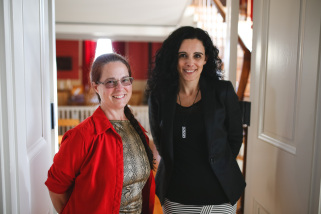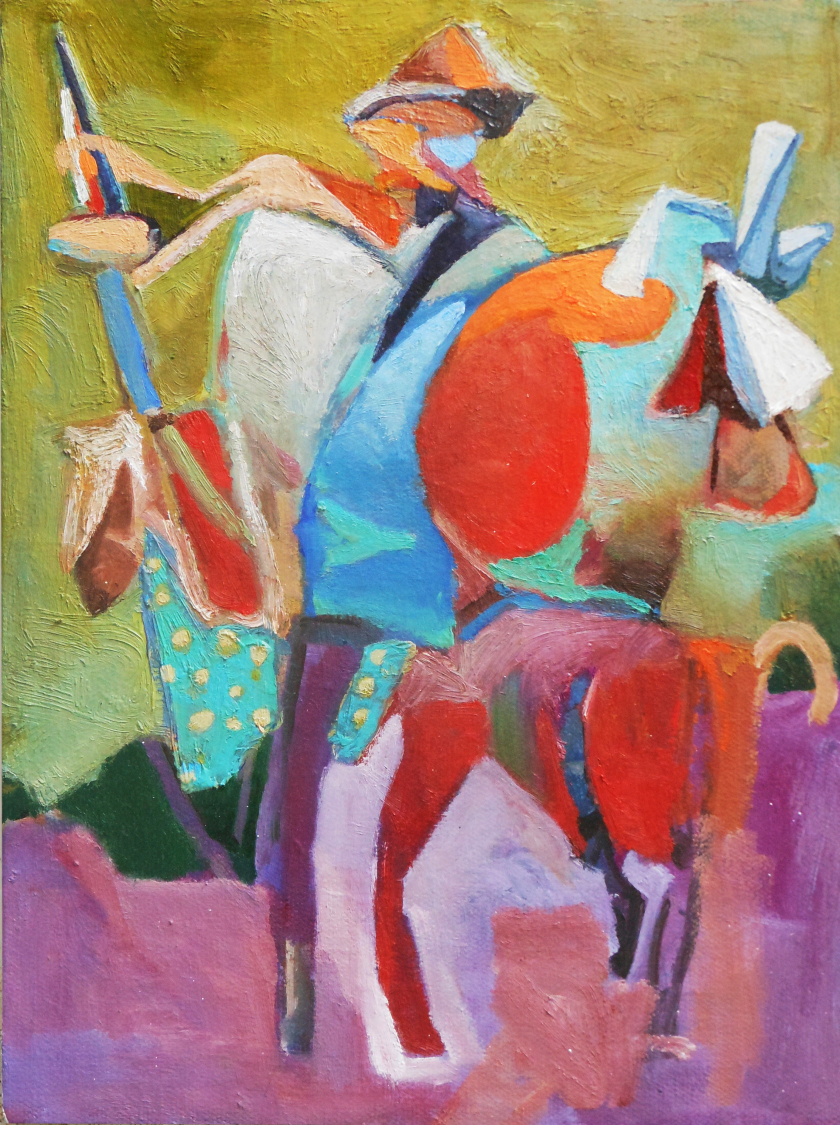The purpose of the Obermann Humanities Symposium is to explore an important humanities topic that highlights UI scholars and scholarship. Often interdisciplinary, the Symposium can include public events, lectures, and related courses.
Don Quixote in the Age of Electronic Reproduction
Organize d by Ana Rodríguez-Rodríguez (Spanish & Portuguese, CLAS) and Denise Filios (Spanish & Portuguese, CLAS), the 2015-16 Obermann–International Programs Humanities Symposium focused both on Don Quixote in its 17th-century context and on its long afterlife in world culture, including translation and adaptation to various media. The symposium featured panel discussions, lectures, and presentations by some of the most prestigious specialists in Spanish, Latin American, and global culture.
d by Ana Rodríguez-Rodríguez (Spanish & Portuguese, CLAS) and Denise Filios (Spanish & Portuguese, CLAS), the 2015-16 Obermann–International Programs Humanities Symposium focused both on Don Quixote in its 17th-century context and on its long afterlife in world culture, including translation and adaptation to various media. The symposium featured panel discussions, lectures, and presentations by some of the most prestigious specialists in Spanish, Latin American, and global culture.
Visit the lively conference website.
Outcomes:
- Explored the relevance of Don Quixote‘s characters and social themes that deeply resonate in Iowa today
- Collaborated with UI and community partners to create new work, exhibitions, concerts, and talks that attracted a diverse audience, including art exhibitions at the Old Capitol Museum in conjunction with Iowa City’s Harte School of Art and the UI Museum of Art and a production of Man of La Mancha featuring local musicians
- Inspired the co-directors to create Quixote-themed events each year, to reinforce community connections forged and to keep alive Iowa City’s love of “the Don”
- Raised the profile of the Department of Spanish & Portuguese by bringing eminent national and international scholars to campus
- Made Spanish culture, language, and literature more visible to the UI campus and the wider community
- Set the stage for a future edited collection with selected works by symposium participants
Symposium Highlights for the Co-Directors:
Denise Filios (Spanish & Portuguese, CLAS): “For me personally, the most important outcome was the opportunity the Symposium gave me to experiment by teaching new materials and media, and to encourage my students to create their own Quixote adaptations to play with this classic novel and characters in ways that made them meaningful and significant to their lives. I was so inspired by my students’ creativity in my Quixote course this fall that this spring I’m having students in my class create collaborative music videos to illustrate Latin music, a project that fuses art, technology, cultural understanding, and music into a new product they can share with their friends and families. I would not have assigned such a project without the inspiration of the panel discussion about teaching Quixote in the Midwest and models for innovative ways to engage students in and around Quixote and other often distant and intimidating Hispanic cultural products.”
Ana Rodríguez-Rodríguez (Spanish & Portuguese, CLAS): “The Symposium and related events gave me the opportunity to share with a wider audience what I see in my Don Quixote classes every year: the power of literature and the humanities to change people’s lives, to help us better understand the world and ourselves, and to inspire us to reach for our potential. Also, I established new professional connections on our campus, in the wider Iowa community, and beyond, which will lead to new projects in the near future. For example, I have been contacted to give invited lectures on Don Quixote and early modern culture in general at Coe College and the University of Illinois at Urbana-Champaign. The symposium has inspired me enormously to implement new ideas in my research and my teaching, and its impact on my work will be long-lasting.”
Keynote Speakers:
- Barbara Fuchs, professor of Spanish and English at UCLA. She also directs UCLA’s Center for 17th-and 18th-Century Studies and the Clark Memorial Library.
- Jenaro Taléns, renowned Spanish essayist, literary critic, and poet. He has been Professor of Literary Theory at the University of Valencia (Spain) and at the University of Geneva (Switzerland).
- Eduardo Urbina, professor of Hispanic Studies at Texas A&M. He is the founder and director of the Cervantes Project, an online digital humanities archive established in 1996.
- David R. Castillo, professor of Romance languages and literatures at SUNY Buffalo. He is the author of Baroque Horrors: Roots of the Fantastic in the Age of Curiosities (University of Michigan Press, 2010).
- Sherry Velasco, professor of early modern Spanish literature and culture in the Department of Spanish and Portuguese and professor of gender studies at the University of Southern California.
